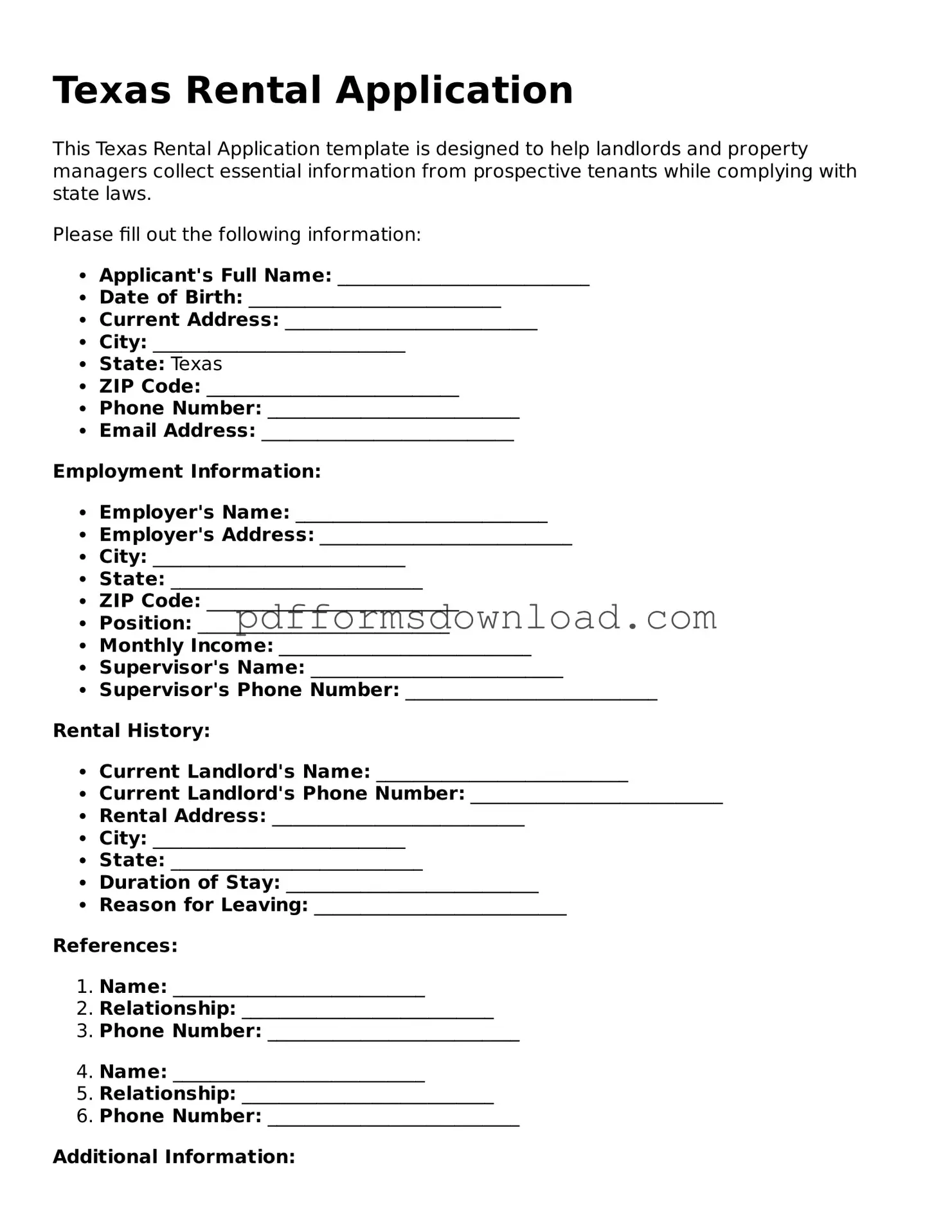What is a Texas Rental Application form?
The Texas Rental Application form is a document used by landlords and property managers to collect information from prospective tenants. This form typically includes sections for personal details, employment history, rental history, and references. It helps landlords assess the suitability of applicants for rental properties.
What information do I need to provide on the application?
Applicants are generally required to provide personal information, including their full name, contact information, and Social Security number. Additionally, details about current and previous employment, rental history, and personal references are often needed. Some landlords may also request financial information to evaluate the applicant's ability to pay rent.
Is there a fee associated with the Texas Rental Application?
Many landlords charge an application fee to cover the costs of processing the application, including background and credit checks. This fee can vary widely, so it's important to ask the landlord or property manager about the amount and what it covers before submitting your application.
How long does it take to process a rental application?
The processing time for a rental application can vary depending on the landlord or property management company. Typically, it can take anywhere from a few hours to several days. Factors such as the number of applications received and the thoroughness of background checks can influence this timeline.
What happens if my application is denied?
If your application is denied, the landlord is required to provide a reason for the denial, often related to credit history, rental history, or income verification. You may request a copy of your credit report if it was used in the decision-making process. Understanding the reasons can help you address any issues for future applications.
Can I appeal a rental application denial?
While there is no formal appeal process for rental application denials, you can communicate directly with the landlord or property manager. If you believe there was an error or misunderstanding, providing additional documentation or clarifying your situation may help in reconsidering your application.
Do I need to provide a co-signer on my application?
A co-signer may be required if the applicant has insufficient income, poor credit history, or lacks rental history. A co-signer agrees to take responsibility for the lease if the primary tenant fails to meet their obligations. It's advisable to discuss this requirement with the landlord during the application process.
What should I do if I have a criminal record?
Having a criminal record can impact your rental application. It is best to be honest about your history when filling out the application. Some landlords may conduct background checks, and failing to disclose this information can lead to denial. Each landlord has different policies regarding criminal records, so it’s important to inquire about their specific criteria.

